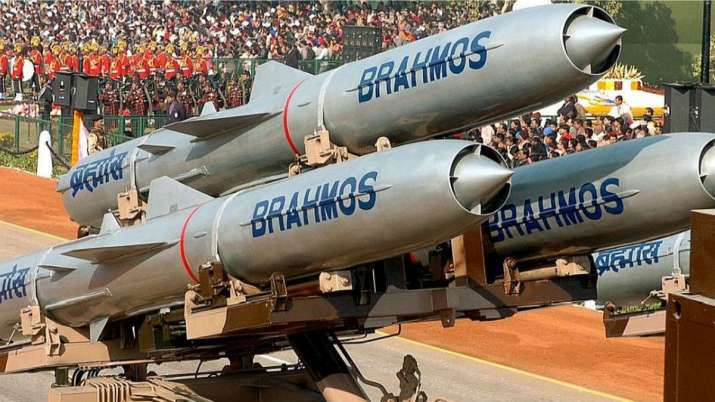Manas Dasgupta
NEW DELHI, Aug 23: The services of three Indian Air Force officers were terminated on Tuesday for deviating from Standard Operating Procedures (SOPs) leading to accidental firing of a BrahMos supersonic cruise missile that landed 124 kilometres inside Pakistan on March 9 causing immense embarrassment and loss of face before Pakistan.
The Indian Air Force (IAF) Court of Inquiry (Col) into the March 9 incident found that deviation from Standard Operating Procedures (SOP) by three officers led to the incident. Services of the officers have been terminated with immediate effect, the IAF said on Tuesday. The missile landed 124 k.m. inside Pakistan following which the IAF ordered a CoI headed by an Air Vice Marshal, a two-star officer, to probe the incident.
“A BrahMos missile was accidentally fired on March 09, 2022. A CoI, set up to establish the facts of the case, including fixing responsibility for the incident, found that deviation from the SOP by three officers led to the accidental firing of the missile,” the IAF said in a statement. “These three officers have primarily been held responsible for the incident. Their services have been terminated by the Central Government with immediate effect. Termination orders have been served upon the officers on August 23, 2022.” It was reported then that the missile was launched from a base in the western sector during routine inspection and maintenance of the system.
A day after the incident, Pakistan military had stated that the supersonic surface to surface missile flying at three times the speed of sound at 40,000 feet ended up 124 k.m. inside Pakistan damaging some civilian property. There was no warhead on the missile, so it did not detonate.
Pakistan registered a strong protest over the “unprovoked violation of its airspace by a supersonic flying object of Indian origin.” Pakistan said the “supersonic flying object” entered its territory from Suratgarh in Rajasthan at 6.43 pm (PST) and crashed into the ground near Mian Chunnu city around 6.50 pm.
The country’s foreign office said Pakistan had summoned India’s charge d’affaires in Islamabad to protest what it called an unprovoked violation of its airspace. Pakistan called for an investigation into the incident, which it said could have endangered passenger flights and civilian lives. The Indian diplomat in Islamabad was also told to convey to New Delhi the neighbouring country’s condemnation of the “blatant violation of its airspace in contravention of the established international norms and aviation safety protocols”.
Pakistan had also warned India “to be mindful of the unpleasant consequences of such negligence and take effective measures to avoid the recurrence of such violations in future.”
In another statement on March 12, Pakistan said the incident raised questions regarding security protocols and technical safeguards against the accidental or unauthorised launch of missiles in a nuclearised environment. Islamabad demanded a joint probe and asked India to explain the measures and procedures in place to prevent future accidental missile launches.
The CoI had completed its investigations by early April following which the findings were sent for legal vetting before they could be submitted. Officials had stated that it didn’t seem to be a technical issue with the missile system and likely human error, which saying that the CoI will confirm the exact nature of the accident.
Officials with knowledge of the missile system had stated that there are a series of checks and balances built into the high end missile system while ruling out the possibility of a technical defect. There include a series of software locks which are authorised at various levels after which there are two manual keys before the countdown can be initiated.
In a statement in Parliament on March 15, Defence Minister Rajnath Singh had said during “routine maintenance and inspection,” a missile was “accidentally released” at around 7 p.m. and it was later learnt that the missile had landed inside the territory of Pakistan. The defence minister had called the incident “deeply regrettable” and blamed on “technical malfunction.” Stating that the missile system was “very, reliable and safe,” Singh had stated that a review of the Standard Operating Procedures for “operations, maintenance and inspections” was being conducted.
BrahMos is a joint venture between India’s Defence Research and Development Organisation (DRDO) and Russia’s NPO Mashinostroyeniya and the missile derives its name from Brahmaputra and Moskva rivers.
The IAF did not reveal the ranks of the three officers in the brief statement, but he media reports had earlier stated that the roles of a group captain and a few other middle-rung officers (wing commander/squadron leader) were under scrutiny after the incident.
“The government and IAF have taken appropriate action. It was a serious incident that demanded tough action,” said Air Marshal Anil Chopra (retd), director general of Centre for Air Power Studies.

